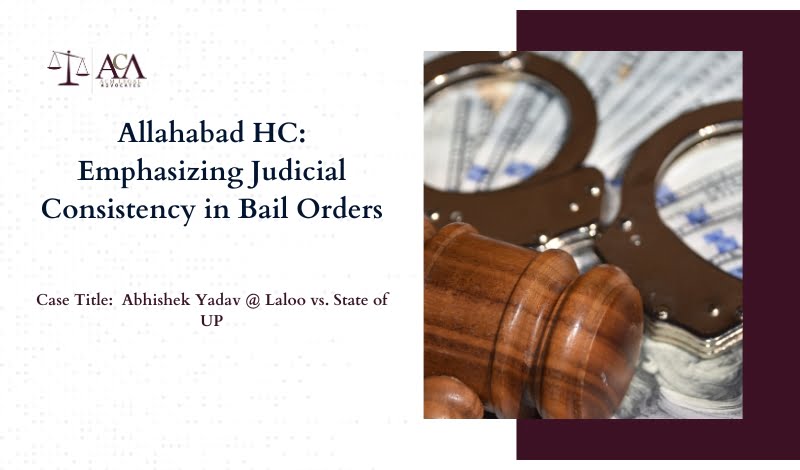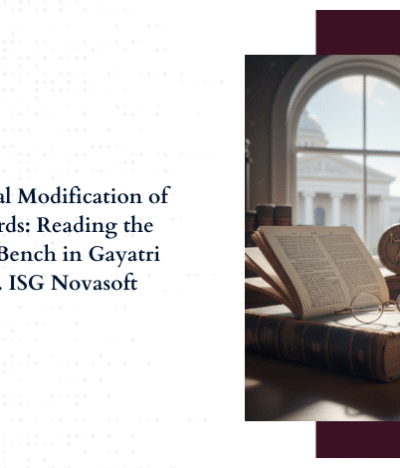In a landmark judgment on June 4, 2024, the Allahabad High Court underscored the critical need for consistency in judicial decisions, particularly in the context of bail orders. The case in question, Abhishek Yadav @ Laloo vs. State of UP (Case No. 310 of 2024), brought to light significant concerns regarding the integrity and public understanding of the judiciary.
Justice Krishan Pahal, presiding over the case, made pivotal observations that contradictory bail orders without explicit justifications compromise the judicial process’s integrity. Such discrepancies, he noted, undermine public trust and foster perceptions of bias or external influence in judicial decisions.
Case Background
The case involves an anticipatory bail application filed by Abhishek Yadav @ Laloo in relation to Case Crime No. 138 of 2023. The FIR alleged that Abhishek Yadav and others assaulted the informant after an altercation, causing injuries. Yadav sought bail on the grounds that his co-accused had been granted bail by a lower court. The inconsistency in bail decisions within the same case prompted Yadav to question the judicial officer’s conduct and decision-making process.
In his ruling, Justice Krishan Pahal emphasized that inconsistent bail decisions, especially without clear reasons, violate the principle of equality before the law enshrined in Article 14 of the Constitution of India. He pointed out that such disparities can destroy public confidence in the judiciary’s fairness and impartiality.
During the proceedings, it was noted that the trial judge had granted bail to six co-accused based on the same set of allegations while denying bail to Abhishek Yadav without acknowledging any significant differentiating factors. This inconsistency was seen as a direct violation of the principle of equal treatment of similarly situated individuals.
Justice Pahal stated, “Protecting the liberty of individuals as guaranteed by Article 21 of the Constitution necessitates that courts avoid delivering inconsistent orders, especially in cases with identical facts and circumstances. He reiterated that the judiciary must uphold the rule of law and maintain its credibility by ensuring that individuals in similar legal situations receive consistent treatment. The Court’s decision to grant anticipatory bail to Abhishek Yadav was based on the principle of parity with his co-accused, who had been granted bail under identical conditions.
The Court’s Remarks
Issuing contradictory bail orders without explicit justifications undermines the judicial process’s integrity. It highlighted the necessity for courts to provide clear reasons for their decisions, especially when dealing with similar cases. This approach is crucial to prevent perceptions of bias and maintain public trust in the legal system.
During the adjudication, Justice Pahal referred to several precedents emphasizing the importance of consistency in judicial decisions. Notably, he cited the Supreme Court’s ruling in Arnesh Kumar vs. State of Bihar (2014), which stressed the need for clear and uniform criteria in granting bail to ensure fairness and justice.
Judicial Implications
The Allahabad High Court’s ruling in this case has significant judicial implications, particularly in reinforcing the principle of consistency in judicial decisions.
- Upholding Constitutional Principles: The ruling underscores the importance of Articles 14 (equality before the law) and 21 (protection of life and personal liberty) of the Indian Constitution. By highlighting the need for consistent judicial orders, the court ensures that these constitutional protections are effectively upheld.
- Preventing Judicial Bias: The judgement aims to eliminate perceptions of judicial bias or external influences. By insisting on clear justifications for bail decisions, the court promotes transparency and accountability within the judicial process.
- Strengthening Public Confidence: Consistent judicial decisions are essential for maintaining public trust in the legal system. The ruling highlights that unexplained disparities in bail orders can undermine public confidence, thereby affecting the overall credibility of the judiciary.
Conclusion
The Court unequivocally underscored the importance of consistency in judicial decisions, especially concerning bail orders. This ruling emphasized that unexplained disparities in bail outcomes not only contravene constitutional guarantees of equality and personal liberty but also diminish public trust in the judiciary. By advocating for transparent and reasoned judicial decisions, the court seeks to uphold the rule of law, prevent perceptions of bias and bolster overall confidence in the fairness and integrity of the legal system.






